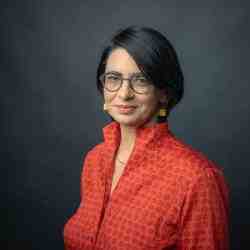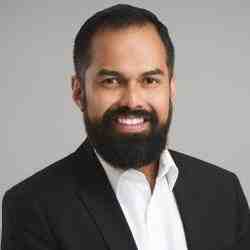Introduction
Gaele is transforming the way France supports children with severe autism by creating tools for mainstreaming behavioral approaches among parents, caregivers and institutions. Her innovative IT-based educational model is very easy to use in order to break down parents’ and professionals’ barriers to change and enable great progress for autistic children to reach their full potential. They also open the door for an unprecedented integration into the school system.
The New Idea
Despite the international trend to recognize autism as a neurodevelopmental disability, France has historically considered and treated autism as a psychoanalytical disorder. Reversing the traditional therapeutic route in this country - that of searching for the psychoanalytical cause of autism, mostly considering mothers responsible for their childrens’ disability, and dealing with autism’s uncontrolled effects through medication, - Gaële focuses on youth education and social integration. Through the unique development of a set of online, easy-to-use, turnkey educational tools, Gaële is enabling the broad-scale adoption of these behavioral approaches. The applications developed by her organization “LearnEnjoy” give exhausted and unequipped parents and professional caregivers the power to help autistic children learn the meta-skills (learning to learn, to imitate, or to pay attention) and general abilities they need to socialize and progress (communicate, read and write). Without naming the behavioral approaches to avoid unproductive debates between different schools of thought, she succeeds in tipping the care system for autism towards a new model.
Autism in France is characterized by a twofold situation with a recurrent under-capacity of the system to welcome all autistic children in educative and social centers, and thousands of parents are left without any viable solution. Gaële has based her entire educational approach on technology for a massive and rapid spread of her solutions among the autistic population. For a few hundred euros and a tablet, parents and professionals can access, without any prior training, thousands of adapted educational exercises covering the child developmental stages from 12 months to five years.
Gaële builds legitimacy around these methods, proving that children who benefit from them do progress. First, she engages top universities to lead scientific research and prove the efficiency of her work . Secondly, she paves the way for a deep transformation of practices in the medical system by working closely with public institutions and developing key partnerships with professional organizations and care centers on the ground. Providing her solutions and training to every stakeholder within the ecosystem of an autistic child, she also makes it possible for ordinary schools to welcome these students, here offering a large-scale solution to the under-capacity of specialized institutions.
The Problem
Autism is growing in France: while the autistic disorder affected 1 in 2,000 children 40 years ago, it is now the case that around 1 out of every 100 children is affected. Around 440,000 people in France, including 90,000 young people, are currently suffering from autistic disorder in France. Autistic disorder is detected at the age of 6 on average, even though early signs can be detected at 12 months and a diagnosis can be made between two and three years old. This late medical screening prevents early intervention work with the children’s still very malleable brains, limiting their chances to follow a closer to normal developmental path. This late medical diagnosis (when existent) is due to the fact that France struggles to recognize autism as a neurodevelopmental disorder. For historical reasons linked to the predominance of the psychoanalytic vision of autistic disorder in psychiatry, treatments in the health and medico-social sector – where children are being taken care of by default, like the “day hospital” - are mainly focusing on “psychic-care”. There is, however, predominant international acceptance and increasing scientific evidence that autism is not a “child-psychosis” - a term that only exists in France. Experts increasingly agree that autism is a neurodevelopmental disorder that should not be treated by psychoanalytical approaches, but rather through behavioral approaches. Numerous Ministries of Health, such as Spain’s and New Zealand’s, even strongly recommend against such practices and empirical results are proving to be very promising*. Since 2010 the Haute Autorité de Santé (High Authority of Health) has recognized autism as a developmental disorder, and not as a child psychosis. Though the HAS recommends behavioral approaches to treat autism, practices and mindsets of medical professionals are deeply rooted in a psychoanalytical logic. According to a national study, 77% of parents of autistic children affirm that their children do not have access to education.
There is a strong lack of available places in specialized care centers and psychiatric hospitals; 13,000 children do not have the possibility to be taken care of in an institution. Though the authorities are trying to fill the gap, the means are still not sufficient. While 8000 children with autistic disorder are born every year, the HAS plans to create only 850 “places” in specialized centers over the next three years to take care of children. This has dramatic consequences: parents have to take care of their children themselves, at home, without the necessary professional support. More and more decide to place their children in private for-profit institutes located in Belgium that often do not meet French health norms, are very expensive, and choose a medication-centered care approach over educational methodologies. In 2013, the Europe Council has sentenced France for the second time for mistreatment of autistic children.
Born in the US in the 60s, behavioral approaches to autism remain very marginal in France. The first specialized center basing its care approach on behavioral methodologies opened in 2005. Today, over the thousands of specialized centers that provide medical care and education to mentally-ill children, financially supported by public authorities, only 25 officially apply behavioral methodologies. Even those 25 centers struggle to be properly equipped with adapted tools. International trainers are rare, and obtaining an international certification (for ABA for example) is both costly and time consuming. Only three universities in France deliver local certifications, which are not properly recognized. For parents who take care of their children at home or caregivers in specialized institutes, applying such behavioral approaches is complicated and requires both training and time to imagine, design, and produce a high quantity of support materials such as images, drawings, etc.
The behavioral approach still lacks the legitimacy in France needed for it to be recognized and adopted more broadly by parents and medical professionals. Health and social professionals usually have a bad opinion of existing behavioral approaches (which they claim to be close to ‘animal dressage’) when they are in fact often unaware of their contents. An increasing number of professionals are starting to use small parts of such methods, sometimes without even knowing they’re applying them. The use of pictograms, core to behavioral approaches, is increasingly recognized as a good practice by a large number of professionals that do not know such tools come from behavioral approaches. There is also an obvious lack of transparency and collaboration between medical staff and parents, thus harming the necessary continuity in childcare. Parents struggle to build relationships with medical staff and to access comprehensive information about their own child. The education system remains closed to children with autistic disorder; teachers, inspectors and education officers are not trained to include children with mental disorders in the classrooms, and lack the necessary human resources to do so. Only 20% of autistic children have access to the traditional academic system, despite a law voted in 2005 that states education is a right for all children, whatever their handicap. In comparison, 80% to 100% of children have access to the traditional academic system in countries like the United Kingdom and Italy.
The Strategy
Gaële is the first to offer a comprehensive and easy-to-use platform of solutions for parents and professionals to access behavioral approach-inspired tools for autistic children, shifting the care system for autism entirely. Gaële has mobilized a multidisciplinary team of experts (orthophonist, illustrator, psychologist, psychomotorist) to transform existing books/methods/exercises - inaccessible to most parents and caregivers - into a comprehensive toolkit that can be used by any individual. The toolkit takes the form of apps that require almost no prior training. Gaële discovered behavioral approaches through a specific methodology (ABA-VB), so LearnEnjoy’s tools rely on a unique combination of existing methodologies, approaches and expertise. This unprecedented set of apps thus results from a very global approach. The LearnEnjoy toolkit comprises of three apps geared towards developing a broad skillset – especially focusing on communication, daily life skills, and academic rigor - that young autistic children struggle to develop in comparison to other children. Such skills are key to increasing their social integration: learning to imitate, listen, and communicate. LearnEnjoy apps facilitate the development of these key skills at a crucial developmental age range: between 12 months and five years. The apps also allow early interventions by parents and professional caregivers as compared to traditional care. An increasing amount of positive feedback from parents who use the apps with their children testify to the positive impact they have on concrete skill development that often stagnates for years with traditional treatments.
LearnEnjoy’s app toolkit has been developed with the help of a team of experts that gamified the exercises and adapted them specifically to children with autism, increasing their visual attractiveness, strong ‘reward logic’, and encouraged interactions between children and parents or caregivers.
These three apps cover three levels of difficulty, and two playing modes allow either the child’s autonomous use of the app or for the parents to play side-by-side with their children. All applications have intentionally been developed for tablets, an interface that is not only considered attractive but is also increasingly used by both children and adults. Furthermore, tablets have been proven to facilitate concentration, understanding and learning when dealing with autistic children.*
Such tablet applications are accessible to all parents at an affordable cost - a few dozen euros compared to hundreds or thousands of euros in monthly fees for placing an autistic child in a specialized institution. The costs for professional care centers is also very low thanks to 1) partnerships with tablet manufacturers and suppliers that equip children for free, and 2) access to the national funding system for professional training to support and monitor caregivers in the use of educative program.
Eventually, this new technology will allow new tracking opportunities to measure progress. To increase the use of LearnEnjoy’s apps by parents, Gaële organizes trainings throughout the year. Already, in a span of 12 months, 300 parents have participated in workshops. Gaële is now looking to create a physical space to systematize trainings and supervision solutions on a much bigger scale. Her strong connections with the main associations of parents with disabled children and her capacity to leverage the power of word-of-mouth also enable Gaële to increase awareness of LearnEnjoy’s outcomes. During the past 18 months, the tablet applications have been downloaded more than 12,000 times, and entered the first ranks in the “Education” category of the App Store.
Gaële actively contributes to discussions led by the government on the subject of autism in France. Beyond her lobbying activity, Gaële is now developing a network of major partners working concretely in the field of mental disability, and has already signed partnerships with two main actors in the education and medico-social spaces: the INS HEA (a higher education institute working around the academic inclusion, education and training of disabled individuals) and the FEGAPEI (a national federation of 4,000 care centers working with people affected by mental disorders). Through these partnerships, her objectives are to offer trainings, evaluate the impact of the use of behavioral techniques on autistic children, encourage practitioners to change their practices, and involve families in the process. Such partners represent a very high spread potential: thousands of specialized institutions, tens of thousands of medical professionals, and hundreds of thousands of potential beneficiaries with mental disorders are in direct contact with such organizations.
The basic technologies used by LearnEnjoy are a good way to equip teachers with concrete tools that, due to new public policies, they are required to introduce in their classes. They also build bridges between the professional sphere (education, health, medico-social) and families, to re-establish a much-needed dialogue between parents and caregivers through this unprecedented basis for discussion. Gaële works in close contact with the Ministry of Education to link the results obtained through her tablet applications with the standard indicators they use to evaluate the academic level of children. She thus builds a strong set of tangible arguments that parents can use to help schools better support their children. In this way, Gaële is enabling access to quality education for autistic children throughout France.
The Person
Gaële grew up moving between France, Madagascar and Cameroun. At a young age, she decided to learn Judo, and became Cameroun’s National Judo Champion in just a few years. After obtaining brilliant academic results, Gaële began a very promising career, leading her to work for eight years with a multinational consultancy firm, and then for six years with one of world’s biggest media companies. In 2005, Gaële gave birth to her second son whose basic motor skills deteriorated over the course of several years. Gaële became convinced that her child had autism, but the pediatrician assured them otherwise and made no diagnosis for 6 months. When her son was 20 months old, a doctor finally diagnosed him with severe autism. Gaële and her husband endured a double trauma: the mental disorder of their son and the inadequacies of the French care system. They discovered both the psychoanalytical approach (that puts the whole responsibility on the mother, ignoring the child), and the children’s psychiatric hospital conditions, which Gaële refused for her son. Having learned of the existence of behavioral approaches (such as ABA(VB)) to treat autistic disorders, Gaële decided to apply the method herself. During her maternity leave, Gaële joined an association that promotes these behavioral approaches and builds specialized institutes that apply them. She wanted her child to be accepted into such an institute, but there were none near her home, and even in distant locations severe shortages made it very difficult to secure a place.
Subsequently, she decided to gather a group of parents, in her city and surroundings, joined a young and dynamic association, and together they created a brand new institute. Gaele acted as a project coordinator leveraging on her professional experience in Project Management. In a few months’ time, Gaële and the team raised sufficient funding and obtained the legal agreements to open. The center now welcomes -on a full time basis- 15 autistic children. It is often mentioned as a model to follow for other French institutions. In expanding her knowledge of behavioral approaches, Gaële realized that parents lack solutions to implement them: books are often complicated, tools need to be created over and over, etc. After meeting with a widowed parent that had no time to take care of his young autistic child, she became convinced that implementing behavioral approaches should be made easily accessible to everyone. Her strong background in developing IT solutions led her to imagine a tablet-based solution that any parent or professional could use without specific training.
In parallel, Gaële aimed to connect her autistic son to the traditional school ecosystem, and faced strong difficulties in securing him a place in a class. After being turned down a few times, she wrote a “blurb” about her son, and finally convinced a school to accept him based on concrete and pragmatic knowledge that he had developed. Gaële is also very involved with the well-known activist organization “Agir et Vivre l’Autisme”, of which she is Vice President, and continuously builds close relationships with influential people in the education and health sectors.




